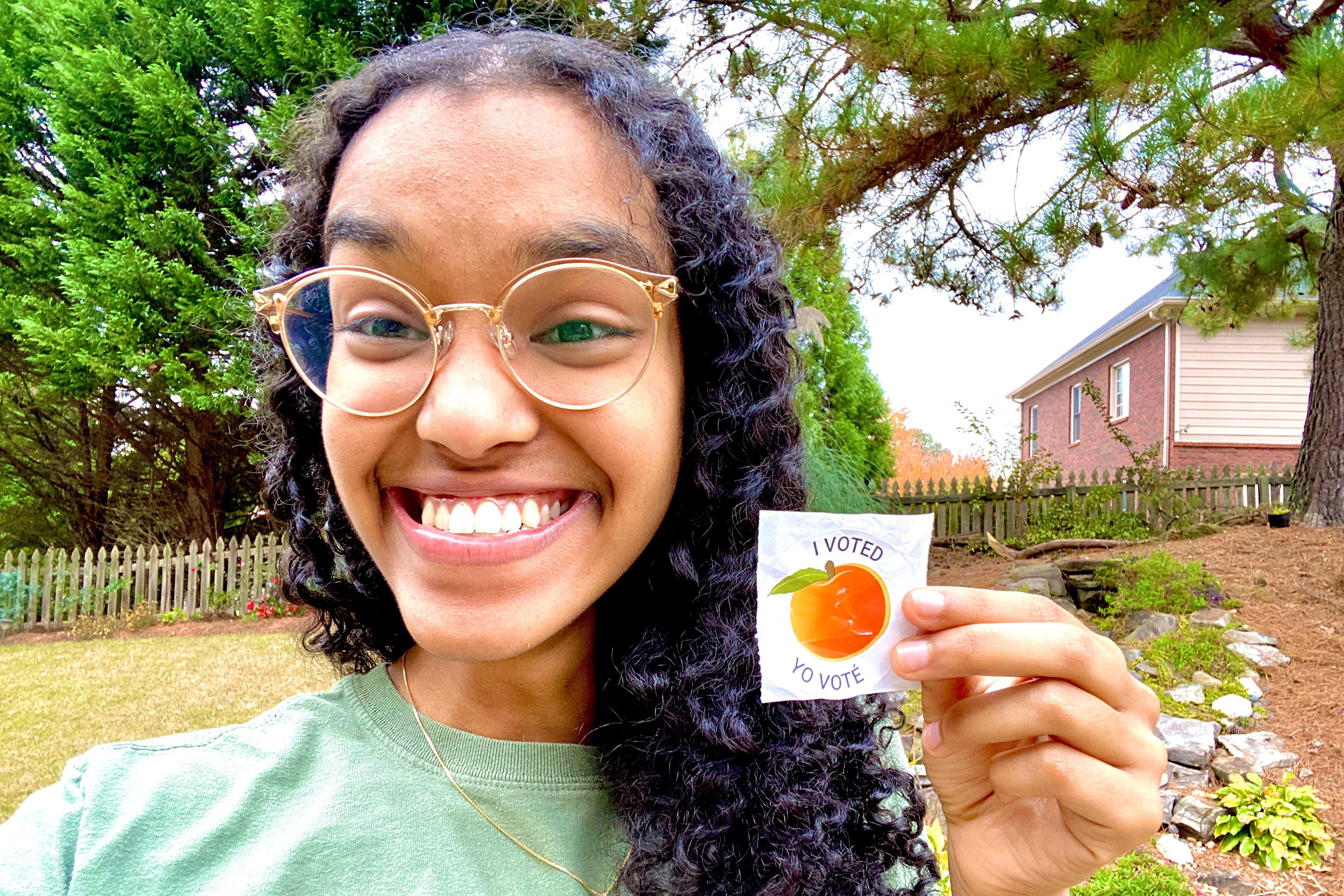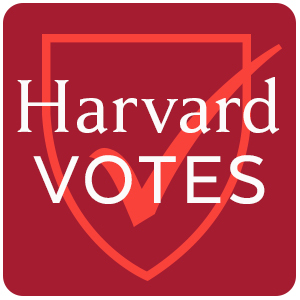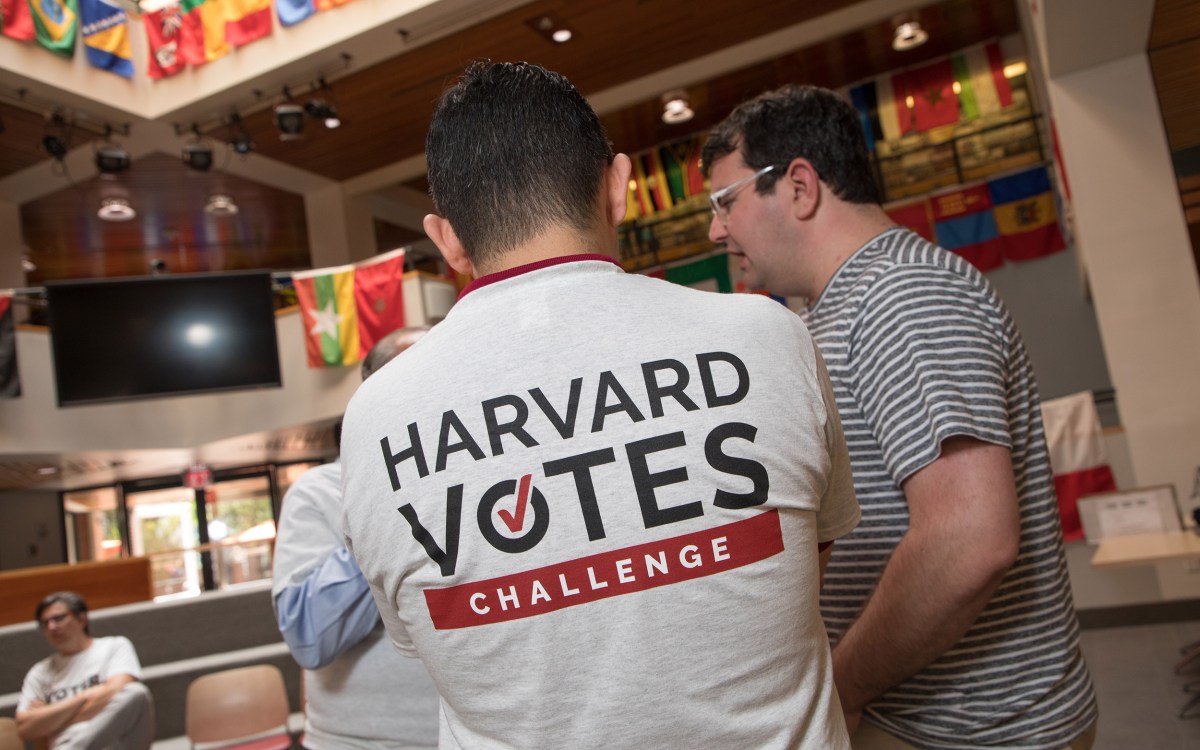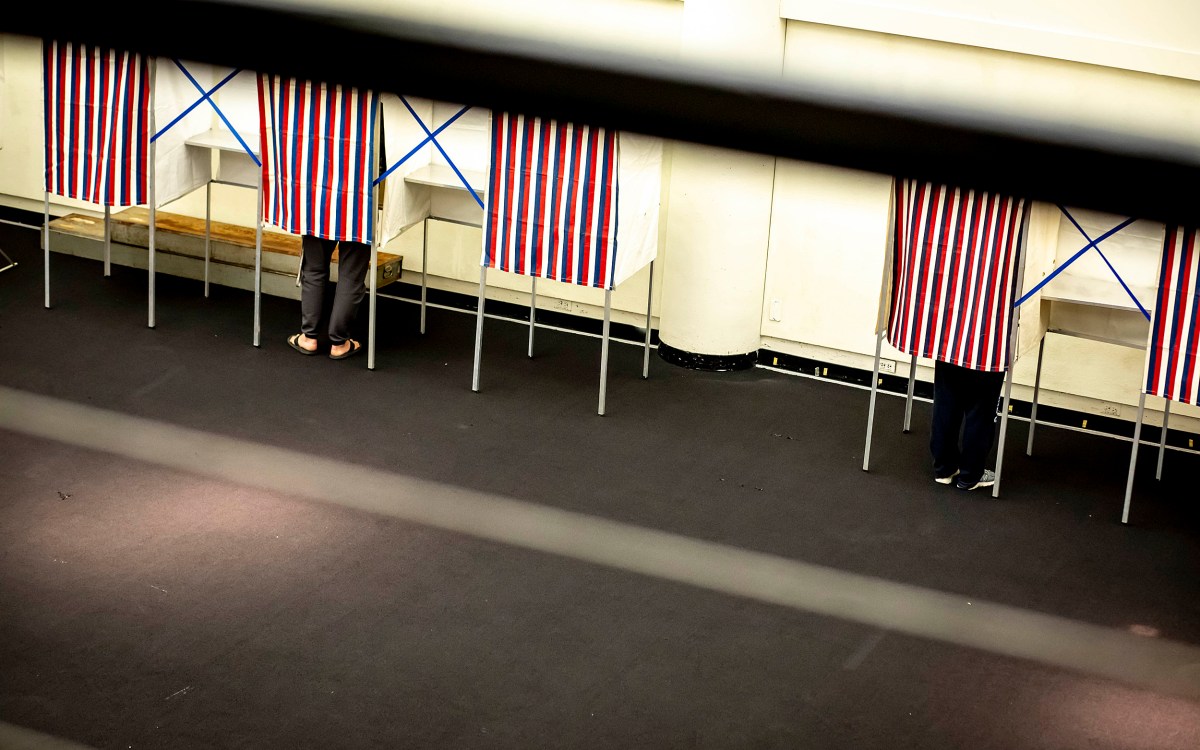
Amen Gashaw ’24 waited six hours to vote in Snellville, Ga.
Courtesy of Amen Gashaw
121 organizations, 390 volunteers, and 1,700 stamps
Harvard Votes Challenge helped tens of thousands of voters participate in the 2020 election

It was Oct. 13 and Amen Gashaw ’24 woke up early with a mission. She drove with her mother straight to a voting site in Snellville, Ga. Arriving half an hour before the polls even opened, Gashaw, a self-proclaimed “election enthusiast,” was determined to vote in her first presidential election on her birthday.
It was 7:30 a.m. and Gashaw’s day was just getting started.
“If you’d told me last year that I’d be standing in line for six hours in capricious Georgia weather with a mask strapped to my face just to vote, I would’ve been incredulous,” she said of her experience.
This year, many Harvard community members faced obstacles on the way to the polls. Some barriers, like long waits and complicated voter registration processes, were expected. Other challenges, such as the unique mail-in voting requirements, were sparked by the pandemic and were novel even to seasoned voters.
The Harvard Votes Challenge, the civic engagement initiative founded in 2018 by the Ash Center for Democratic Governance and Innovation and Institute of Politics (IOP) at Harvard Kennedy School, was launched with a mission to help University voters cast their ballots. In March, the Challenge team quickly realized that the voter engagement and support tactics they had deployed on campus in the past wouldn’t work. The Harvard community was battling the pandemic, living, working, and studying miles from Cambridge.
“Under unprecedented circumstances, Harvard students, faculty, and staff teamed up to engage our entire community to provide information, answer questions, and break down barriers to voting,” recalled IOP Director Mark D. Gearan ’78.
Late last spring, the Challenge team began to assemble a coalition of organizers at all of Harvard’s 12 degree-granting Schools, eventually signing on more than 390 volunteers across campus. Rather than trying to find a one-size-fits-all strategy, the team worked with each School to develop unique methods to accomplish everything from inspiring and registering voters to securing stamps for mail-in ballots. The only overarching principle that guided tactics across the University was to meet voters where they were.
Connecting with Harvard voters
The Challenge team worked with registrars across campus to ensure that voter registration was built into enrollment platforms. Hundreds of faculty dedicated class time to discussing voting, many giving students time to register to vote.
“Research shows that integrating information about voting into our academic infrastructure, classroom discussions, and student-to-student communication can significantly improve student participation even if they are registered in other states,” noted Harvard Law School Equal Democracy Project faculty Martha Minow, Andrew Crespo, Ruth Greenwood, Lawrence Lessig, and Nicholas Stephanopoulos in a letter to their peers.
For Ruth Lingford, a professor in the Art, Film, and Visual Studies Department, this meant building civic engagement into her curriculum. Students in her “Fundamentals of Animation” class were given the task of creating an animation encouraging people to vote.
Harvard University Mail Services ensured that the select students on campus this fall had everything they needed to register and vote, delivering thousands of stamps and envelopes. For community members off-campus or with specific questions, the Challenge team created virtual resources on how to vote in 2020 and set up a special text hotline for Harvard voters.
Graduate residents and community members were inspired to vote by the “Notes for Votes” concert series hosted by the Harvard Graduate Student Commons. On the Longwood campus, a series of events covered the close relationship between community health and democracy. Not to be excluded, the science, technology, and engineering community on campus hosted an event titled “STEM and Civic Engagement in 2020,” and the Harvard Sustainability Office co-hosted the discussion, “Mobilizing the Environmental Vote.”
When it became clear that many polling places would be understaffed in November, the Challenge team took up the charge of recruiting poll workers. Across campus, hundreds of Harvard community members signed up for the task, many working on Election Day.
Early signs of success
With students, faculty, and staff working across campus and across the country, it’s difficult to quantify the exact number of people helped by the Challenge this year. Yet with 121 organizations, from varsity sports teams to the Turkish Law Students Association and Harvard Black Health Advocates, pledging to help 100 percent of their members register and vote, organizers estimate they’ve reached tens of thousands in the Harvard community.
Early voter engagement reports are also showing promising signs that the Challenge efforts this past year had a significant impact. At Harvard Kennedy School, more than 92 percent of all eligible students registered to vote. Across campus, over 8,000 community members registered and pledged to vote via the Challenge.
While the Challenge team is celebrating the successes of the past few months, they are also already making plans to build on the momentum of the 2020 election to continue growing civic engagement on campus into 2021 and beyond.
“While I’ve always been one to appreciate the immense importance of civic engagement, this election cycle has definitely emphasized the salience of even a singular vote or one person’s convictions,” said Gashaw. “The fact that the democratic process is available to us, has worked in the past, and worked again this year, I hope, will galvanize voters to continue exercising their rights as political actors and to never let go of the insurmountable influence they hold as citizens.”
“Young Americans show no sign of slowing down in their civic engagement,” said Gearan. “Harvard Votes Challenge seeks to foster a greater civic culture at the University and we will continue to ensure that our students graduate with the tools they need to build a life committed to public service and public purpose — a benefit for all Americans and the future of democracy.”






